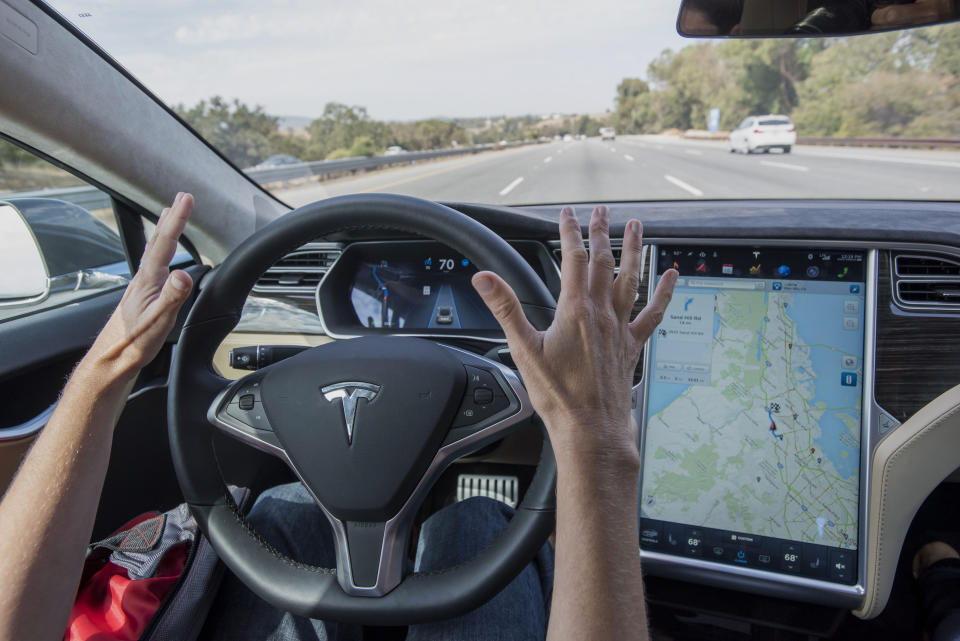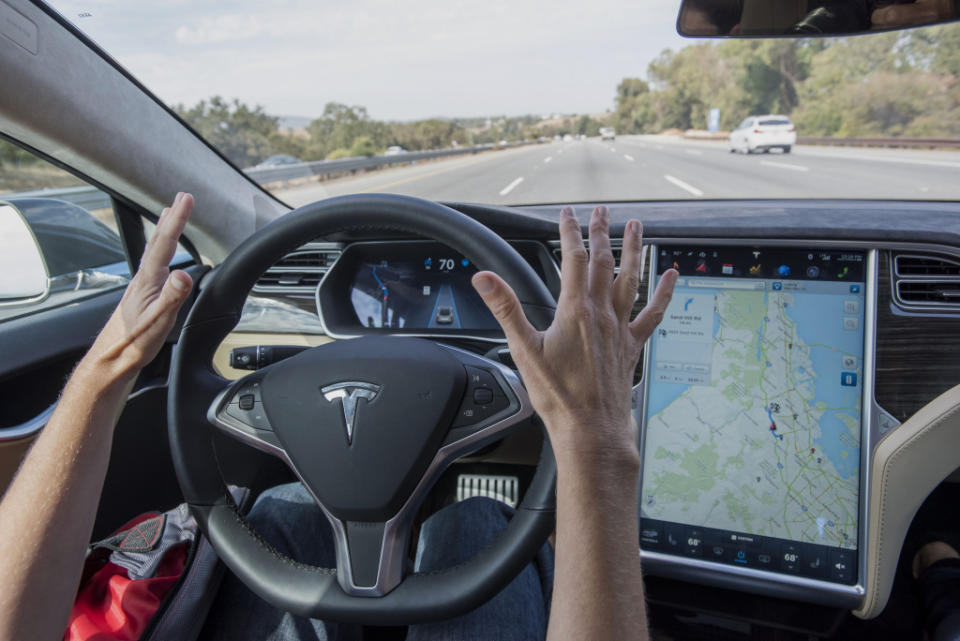Tesla Driver Switches Initial Claim, Says He Was Responsible for Crash — Not the Car’s Autopilot
A Tesla driver who initially told police that the car’s partially self-driving Autopilot feature caused a crash and minor injuries in Minnesota last week has retracted that claim, saying instead that it was actually his fault.
David Clark, 58, wrote an email to the Kandiyohi County Sheriff’s Office on Monday saying that he was confused in the moments following the crash and places no blame on his Tesla Model S Autopilot system, according to Reuters. After consulting with his fellow passengers in the car, Clark now believes that he stepped on the accelerator and disengaged the autonomous feature, causing the car to veer off a roadway in Hawick, Minn., and overturn in a marsh.
“I did not intend to put the blame [on] Tesla or the auto pilot system as I am aware that I need to be in control of the vehicle regardless if the auto pilot system is engaged or not,” Clark said in the email that was released by Tesla, Reuters reports.
Some damage to the company’s reputation may have been done regardless, however. Tesla’s stock dipped 3% over the weekend despite CEO Elon Musk claiming that its share price was “high.”
Tesla had cast doubt on Clark’s initial story, saying in a statement that it had “no reason to believe [it] worked other than as designed,” according to Minnesota’s Star-Tribune. But the electric vehicle maker pledged to “establish the facts of the incident” and offer “full cooperation to the local authorities.”
Tesla’s Autopilot feature can autonomously control the car for short periods of time, allowing drivers to remove their hands from the steering wheel while it maintains a set speed within a lane and breaks in traffic. But the system is not able to fully self-drive, as it reminds drivers when turned on to stay engaged and be prepared to take the wheel if needed.
Last year, a Florida driver was killed after his Tesla collided with a tractor trailer while in Autopilot mode. The accident prompted intense scrutiny and a federal investigation by the National Highway Traffic Safety Administration.
Ultimately, the agency ruled that a recall of the model was not necessary, with investigators concluding that there were no safety defects in the system and that Tesla manuals make it clear that human drivers are responsible for driving the vehicle.
See original article on Fortune.com
More from Fortune.com


